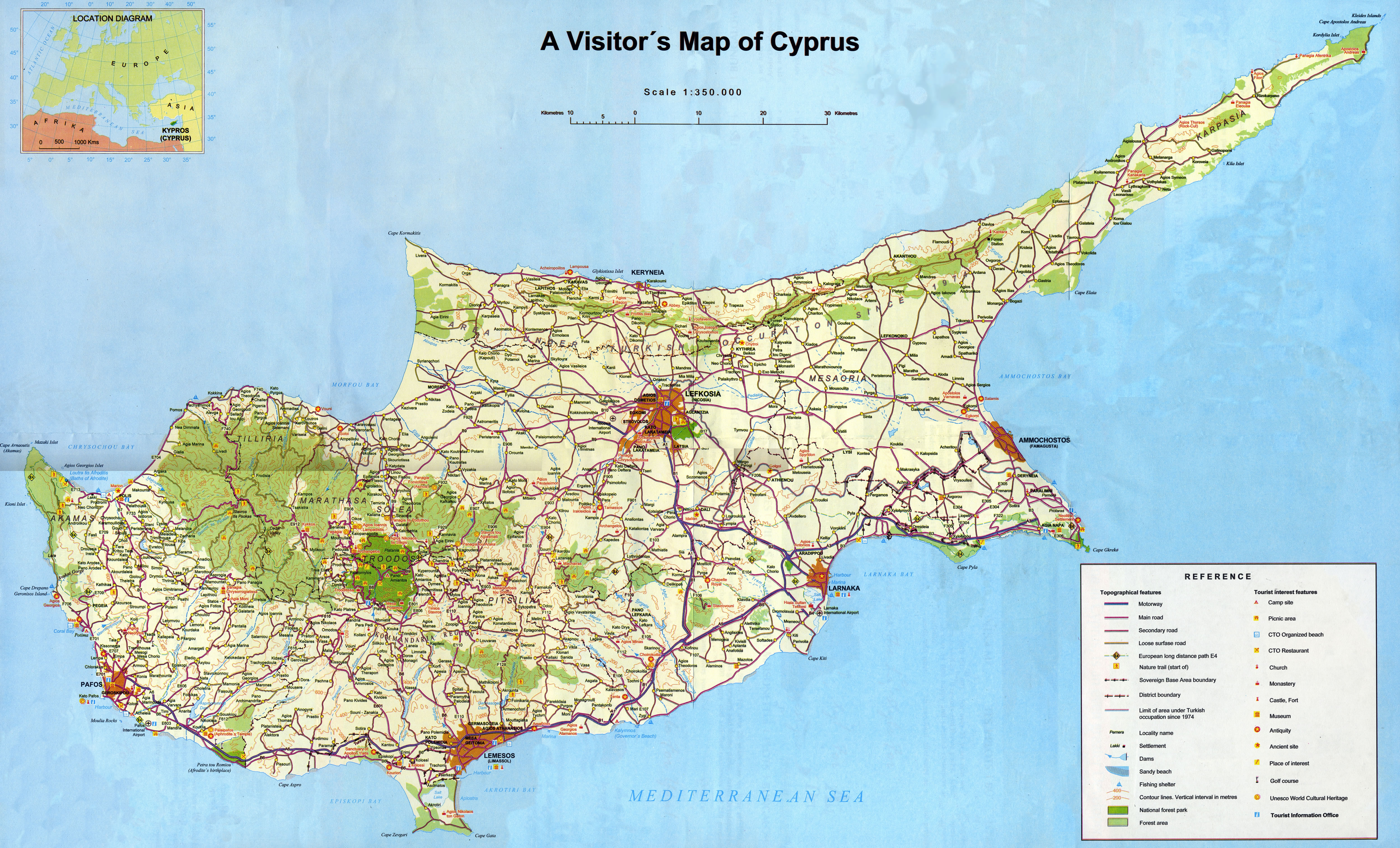|
Path: SAGT 2009 > About Cyprus |
|
Paphos - Cyprus October 18 - 20, 2009 Supported by:
European Association for Theoretical Computer Science
Limassol Co-operative Savings Bank Ltd
IBM Cyprus
|
About Cyprus
......................................................................................................................................
Cyprus, the legendary birthplace of Aphrodite, is an island situated in the North-Eastern basin of the Mediterranean Sea, at the crossroads of Europe, Africa and Asia. The legend of the birth of Aphrodite, emerging through the foam of the sea waves, can be compared to the geological birth of Cyprus, in the sense that the island rose from the ocean. The nucleus of this phenomenon is the mountain range of Troodos, which is 92 million years old. The rocks of Troodos were created from the ancient oceanic bark, which started rising from the sea 10 million years ago. First emerged from the sea the Troodos massif on to which limestone sediment began to attach gradually leading to a drop in the depth of the seas. The last to become attached was the Pendadactylos range to the north of the Troodos massif. Cyprus emerged from the sea 1,85 million years ago.
Cyprus is a country where 21st century still rubs shoulders with history. It is an island with great diversity, combining western bustle and eastern calm. Cosmopolitan hotels, restaurants and nightclubs coexist with quiet mountain villages seemingly untouched by the 21st century. The island's strategic location has been a major factor in shaping its history throughout the centuries and, in recent years, its development into a centre for international business. This sun-drenched island has been at the crossroads of world events for centuries. Greek, Roman, Byzantine and British influences have all had a bearing on life in Cyprus. 10,000 years of history and culture have left Cyprus a heritage rich in historical and artistic treasures - Byzantine monasteries, ruins of Greek and Roman monuments and Venetian castles.
Time ................................................................................................................................................ Cyprus time is seven hours ahead of Eastern Standard Time, 2 hours ahead of Greenwich Mean Time and an hour ahead of Central Europe Time. Along with the rest of continental Europe, the clock is advanced one hour during summer, from the end of March to the end of September, almost a month earlier than the UK, the US and Canada. Therefore keep in mind that the time difference with these countries is one hour greater for some weeks in April and October.
Climate
You will find the Cypriot climate
generally mild. Cyprus has a warm
Mediterranean climate with breezy winds
close to the coast and cooler summer
nights. An outstanding feature of the
Cypriot climate is its ample sunshine,
estimated to be 3,000 hours per year!
Winters are mild and the rain season is
between November and March.
Outlet Plugs ............................................................................................................................................. The outlet plugs in Cyprus are of 240 Voltage and type G (as in UK).
Useful Links .............................................................................................................................................
|









